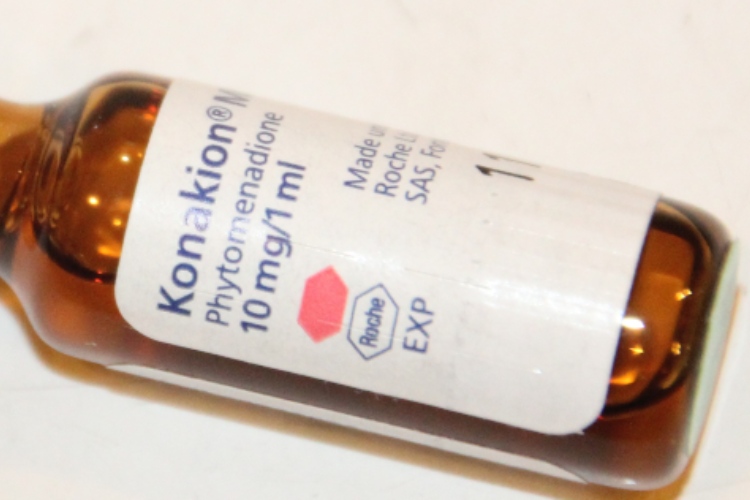The Benefits Of Vitamin K + Dosage Recommendations
If you have health on your mind, it’s best to start with nutrition. You can exercise all day long, but if you aren’t getting enough vitamins and minerals, your health could still suffer.
Vitamin K is an often overlooked part of a healthy diet. It’s responsible for clotting your blood, building bones, brain function and heart health. Here are some ways to tell if you’re not getting enough vitamin K, and how you can introduce more into your diet.

Are You Vitamin K Deficient?
The fact is, you might have been born vitamin K deficient, especially if you were born early. Babies’ stomachs have a small supply of the bacteria needed to make vitamin K available, and mothers don’t give up much through the placenta while pregnant. Therefore, you were possibly given a vitamin K injection as a newborn to reduce the chances of developing hemorrhagic diseases or brain damage.
As an adult, you can find out your vitamin K levels with a prothrombin time test. This test measures how quickly your blood coagulates. If it takes longer than 14 seconds for your blood to clot, you may have a deficiency.
You don’t necessarily have to visit your doctor to find out if you’re consuming enough vitamin K. If you bruise easily, bleed excessively, have particularly difficult menstrual cycles, or find blood in your morning movement- you may want to speak with your doctor and focus on getting your vitamin K levels up.

How Can I Get More Vitamin K?
In extreme cases of deficiency (which is rare), medical forms of vitamin K can be injected into the skin.
The easiest way to cover your bases is to make sure you’re eating enough vitamins in your diet. Vitamin K is most commonly found in green leafy vegetables, with collard greens and spinach providing the largest amounts.
Even if you’re stuffing your face with greens however, your body might not be properly absorbing enough vitamin K. The bacteria in your gut is one of the most important things to think about when it comes to overall health.
These little microscopic organisms are responsible for breaking down your food and absorbing vitamins to use in your everyday bodily functions.
If you’re constantly eating junk food, your microbiome might not be healthy enough to extract the amount of vitamin K you need. It’s important to avoid sugary and processed foods, sticking to leafy greens, fermented foods (like sauerkraut or kombucha- this is great for your gut bacteria) or taking a good probiotic.
Some other foods rich in vitamin K are:
-swiss chard
-raw cheese
-yogurt
-brussel sprouts
-egg yolks
There are some common medications that could affect the way your body absorbs vitamin K from food as well. Blood thinners, cholesterol-lowering drugs and long-term antibiotic use can disrupt normal gut bacteria health, making you more at risk for a deficiency. If you feel you’re experiencing symptoms associated with vitamin K deficiency, and are taking one of these drugs, you should speak with your doctor.
Vitamin K is one of the more poorly studied vitamins. Scientists still don’t quite agree on exactly how much a person needs. The National Institute of Health admits that there’s insufficient data to establish a recommended daily amount, but states that adults should probably consume around 90 micrograms a day, and children 30-60 micrograms a day, depending on their age.
Vitamin K deficiency is a rare but serious issue that’s easy enough to remedy. Eating a balanced diet full of leafy green vegetables, fermented foods, and maintaining good gut health are usually sufficient for making sure you’re absorbing enough K from your food.
